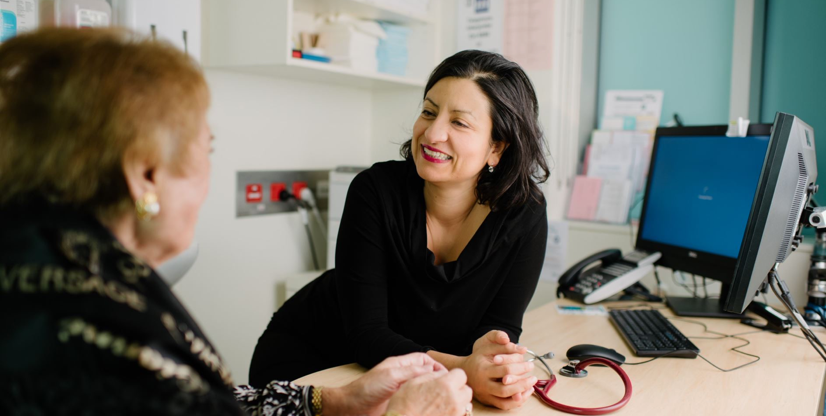Clinics & services
Specialist Clinics
For GPs
- Home
- Clinics & services
- Clinics
- Specialist Clinics
- For GPs
Quick links
Overview
We have embarked on an exciting digital journey where all referrals enter our Electronic Management System. This digital pathway has:
- significantly reduced clinical risk of manual paper processes, and
- streamlined patient flow to ensure referrals are registered within 3 days and triaged within 5 days.
The next step in our digital journey is to only accept eReferrals.
About eReferrals
The HealthLink eReferral Solution allows you to submit pre-populated eReferrals directly into our Patient Administration System.
The benefit of this system is:
- You can refer to all Specialist Clinics
- It's free - there's no cost to your practice
- Important patient health information is pre-populated into the eReferral, reducing the requirement for typing and collating information
- Attachments can be sent with the eReferral, such as pathology and radiology results
- You'll receive notification that we've received your eReferral in real-time
HealthLink SmartForms are available with leading GP clinical software vendors.
How to set up eReferrals
We encourage GPs to engage with our digital journey by registering for a free HealthLink Portal Licence.
Get help with eReferrals
HealthLink new account registration and setup
Email: request@healthlink.net
HealthLink helpdesk
Email: helpdesk@healthlink.net
Phone: 1300 145 465 (option 4)
Watch the HealthLink eReferral tutorial videos (quick start guides)
We are transitioning away from producing PDF copies of our guides for sending SmartForms.
This ensures we can more easily manage:
- version control of all the guides
- updates where we have our customers linking to these resources.
- changes/updates to any of these Practice Software, our Portal, and any eReferral launch points
The following guides are being used to assist with usage promotion:
Referral next steps
Accepted referrals are triaged as urgent or routine:
- For urgent referrals, Specialist Clinics will contact the patient to make an appointment for within 30 days.
- For routine referrals, Specialist Clinics will send a letter to the referrer and the patient detailing the next steps.
Where a referral is incomplete or declined, Specialist Clinics will send a letter to the referrer (and the patient in the case of a declined referral) notifying them of the outcome.
Please note:
- If you are in the process of setting up eReferrals and in the interim still faxing referrals, please ensure you do not fax multiple patient referrals in one transaction.
- We do not accept referrals by email.
Referral validity periods
Referral validity periods begin from the date the first non-admitted specialist service is provided. Guidelines on validity periods for referring and requesting Medicare services (Services Australia) also apply to all other referrals to Victorian public health services.
Indefinite referrals are appropriate for partnership care between the patient, their GP and the health service (for example, patients with chronic or progressive conditions requiring ongoing specialist advice or services to improve and optimise a person’s function and participation in their daily living) and associated care referrals.


